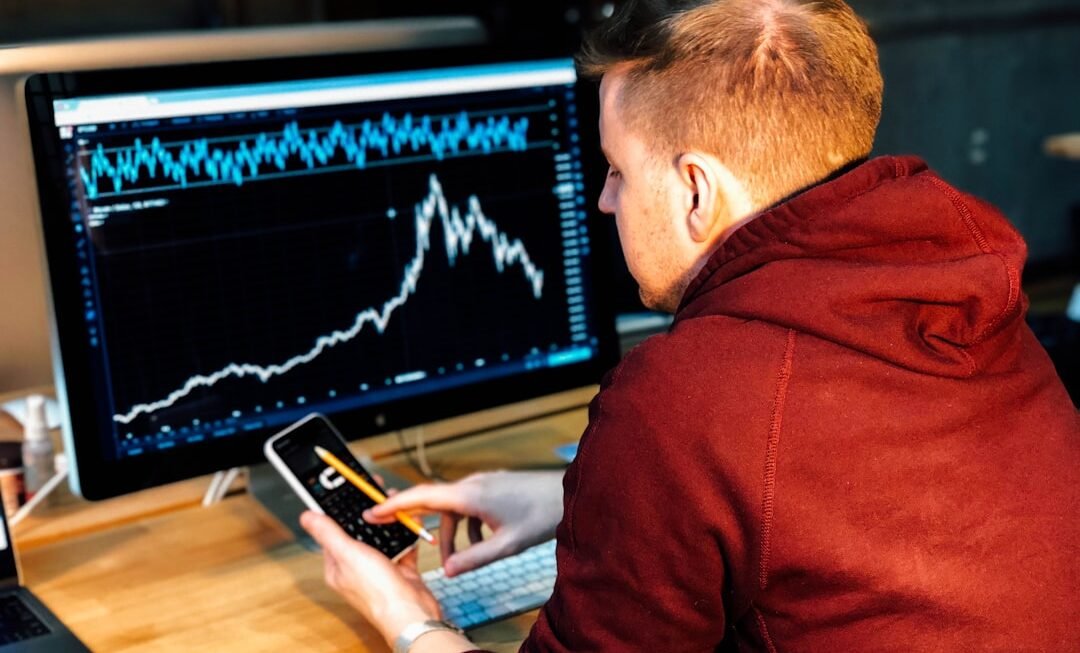Social trading has undergone a remarkable transformation since its inception, evolving from rudimentary online forums to sophisticated platforms that integrate social networking with trading functionalities. The concept can be traced back to the early 2000s when traders began sharing insights and strategies on online forums and chat rooms. These early forms of social trading were largely informal, relying on the exchange of ideas among traders who sought to learn from one another.
By the late 2000s, the rise of social media significantly influenced the landscape of trading. Platforms like Twitter and Facebook allowed traders to share real-time updates and market analyses with a broader audience.
This shift marked a pivotal moment in the evolution of social trading, as it enabled individuals to not only share their thoughts but also to follow and interact with successful traders. The introduction of copy trading—where users could automatically replicate the trades of experienced investors—further revolutionized the field, making it accessible to a wider audience, including those with limited trading knowledge or experience.
How Social Trading Works
At its core, social trading operates on the principle of collaboration and shared knowledge among traders. Users can connect with one another, share insights, and even replicate trades made by more experienced investors. The mechanics of social trading typically involve a platform where traders can create profiles, showcase their trading performance, and engage with others through comments, likes, and shares.
This interactive environment fosters a sense of community, allowing traders to learn from each other’s successes and failures. When a user decides to engage in social trading, they can browse through various profiles of traders, assessing their performance metrics such as win rates, risk levels, and overall profitability. Once they identify a trader whose strategy aligns with their own risk tolerance and investment goals, they can choose to follow or copy their trades.
This process is often facilitated by automated systems that execute trades on behalf of the follower based on the actions of the trader they are copying. This seamless integration of social interaction and automated trading has made it easier for novice investors to participate in financial markets without needing extensive knowledge or experience.
The Advantages of Social Trading
One of the most significant advantages of social trading is its ability to democratize access to financial markets. Traditionally, investing in stocks, forex, or cryptocurrencies required a certain level of expertise and experience that many individuals lacked. Social trading platforms have lowered these barriers by allowing inexperienced traders to learn from seasoned professionals.
By observing the strategies and decisions of successful traders, novices can gain valuable insights that would otherwise take years to acquire through trial and error. Additionally, social trading fosters a sense of community among traders. This collaborative environment encourages knowledge sharing and support, which can be particularly beneficial during volatile market conditions.
Traders can discuss market trends, share tips, and provide emotional support to one another, creating a network that enhances their overall trading experience. Furthermore, the ability to follow multiple traders simultaneously allows users to diversify their portfolios without having to conduct extensive research on each individual asset.
The Role of Technology in Social Trading
Technology plays a crucial role in the functioning and success of social trading platforms. The integration of advanced algorithms and data analytics enables these platforms to provide users with real-time insights into market trends and trader performance. Machine learning algorithms can analyze vast amounts of data to identify patterns and predict market movements, offering traders valuable information that can inform their decisions.
Moreover, mobile technology has significantly enhanced the accessibility of social trading. With the proliferation of smartphones and mobile applications, traders can engage with their networks and execute trades from virtually anywhere in the world. This level of convenience has attracted a new generation of investors who prefer to manage their portfolios on-the-go.
Additionally, the use of social media integration allows for seamless sharing of insights and strategies across various platforms, further enriching the social trading experience.
Popular Social Trading Platforms
Several platforms have emerged as leaders in the social trading space, each offering unique features that cater to different types of traders. eToro is one of the most well-known platforms, boasting millions of users worldwide. It allows individuals to copy the trades of successful investors while also providing a user-friendly interface that appeals to beginners.
eToro’s unique feature is its “CopyPortfolio,” which enables users to invest in a diversified portfolio managed by professionals. Another notable platform is ZuluTrade, which focuses on connecting traders with signal providers who share their strategies. Users can customize their experience by selecting specific traders based on performance metrics and risk levels.
ZuluTrade also offers a unique rating system that evaluates signal providers based on their historical performance, making it easier for users to make informed decisions. CopyTrader is another popular option that allows users to automatically replicate the trades of top investors in real-time. This platform emphasizes transparency by providing detailed statistics on each trader’s performance history, enabling users to assess potential risks before committing their funds.
Risks and Challenges of Social Trading
Despite its many advantages, social trading is not without its risks and challenges. One significant concern is the potential for over-reliance on other traders’ strategies. While following successful investors can provide valuable insights, it may also lead individuals to neglect their own research and analysis.
This dependency can be particularly detrimental during market downturns when even experienced traders may struggle to maintain profitability. Additionally, the performance of traders on social trading platforms can be misleading. Many platforms showcase top performers prominently, but these results may not be indicative of future success.
Market conditions are constantly changing, and what worked well in one environment may not yield similar results in another. Newer traders may be lured into following high-profile investors without fully understanding the risks involved or the strategies being employed.
How to Choose the Right Traders to Copy
Selecting the right traders to copy is a critical aspect of successful social trading. Investors should begin by evaluating potential traders based on their historical performance metrics such as win rates, average returns, and risk levels. It is essential to consider not only short-term gains but also long-term consistency in performance.
A trader who has achieved high returns over a brief period may not necessarily be reliable for sustained success. Furthermore, understanding a trader’s strategy is vital before deciding to copy their trades. Different traders may employ various approaches—some may focus on day trading while others might adopt a long-term investment strategy.
Aligning one’s own risk tolerance with that of the trader is crucial; for instance, a high-risk trader may not be suitable for someone who prefers a conservative investment approach. Engaging with potential traders through comments or direct messages can also provide insights into their thought processes and decision-making styles.
The Impact of Social Trading on Traditional Investing
Social trading has significantly influenced traditional investing practices by introducing new dynamics into how individuals approach financial markets. The rise of social trading platforms has shifted some power away from institutional investors toward retail traders who now have access to similar tools and information previously reserved for professionals. This democratization has led to increased competition in financial markets as retail investors become more informed and engaged.
Many are now offering features that allow clients to share insights or follow expert analysts within their platforms. This shift reflects an acknowledgment that collaboration and community engagement can enhance investment outcomes for clients while fostering loyalty toward financial institutions.
The Future of Social Trading
The future of social trading appears promising as technology continues to advance and reshape financial markets. With the increasing integration of artificial intelligence and machine learning into trading platforms, users can expect more personalized experiences tailored to their individual preferences and risk profiles. These technologies will likely enhance decision-making processes by providing real-time data analysis and predictive insights.
Furthermore, as regulatory frameworks evolve to accommodate social trading practices, we may see greater transparency and security within these platforms. Enhanced regulations could help protect investors from fraudulent activities while fostering trust in social trading networks. As more individuals become aware of social trading’s potential benefits, its adoption is expected to grow, leading to an even more interconnected global trading community.
Tips for Success in Social Trading
To maximize success in social trading, individuals should adopt a strategic approach rather than relying solely on intuition or popular trends. Setting clear investment goals is essential; whether aiming for short-term gains or long-term wealth accumulation will influence which traders to follow and how much risk one is willing to take on. Diversifying one’s portfolio by copying multiple traders with different strategies can also mitigate risks associated with market volatility.
Continuous learning is another critical component of success in social trading. Engaging with educational resources provided by platforms or participating in discussions within the community can enhance one’s understanding of market dynamics and improve decision-making skills over time. Additionally, maintaining an awareness of market news and trends will enable traders to adapt their strategies as conditions change.
Regulatory Considerations for Social Trading Platforms
As social trading continues to gain traction globally, regulatory considerations have become increasingly important for both platforms and users alike. Regulatory bodies are beginning to scrutinize these platforms more closely due to concerns about investor protection and market integrity. Ensuring compliance with local laws regarding financial services is crucial for platforms operating in multiple jurisdictions.
Transparency is a key regulatory focus; platforms must provide clear information about fees, risks associated with copying trades, and the performance history of traders available for copying. Additionally, user data protection has become paramount as concerns about privacy breaches grow in an increasingly digital world. As regulations evolve, both platforms and users must stay informed about compliance requirements to navigate this complex landscape effectively.
In conclusion, social trading represents a significant shift in how individuals engage with financial markets, blending technology with community-driven insights to create an accessible investment environment for all levels of traders. As this field continues to evolve, understanding its intricacies will be essential for anyone looking to leverage its potential benefits while navigating its inherent risks.
FAQs
What is social trading?
Social trading is a form of investing that allows individuals to observe and copy the trading decisions of experienced and successful investors in real time. It is facilitated by online platforms that connect traders and investors, allowing them to interact, share ideas, and replicate each other’s trades.
How does social trading work?
In social trading, individuals can follow and copy the trades of experienced traders, known as “experts,” in real time. This is typically done through a social trading platform, where users can view the performance and trading history of experts, and choose to replicate their trades automatically.
What are the benefits of social trading?
Some of the benefits of social trading include the ability for inexperienced investors to learn from and emulate the strategies of successful traders, the potential for diversification by following multiple experts, and the convenience of automated trading based on the decisions of others.
What are the risks of social trading?
While social trading can offer opportunities for learning and potential profits, it also carries risks. These include the possibility of losses if the expert traders make poor decisions, the potential for over-reliance on others’ strategies, and the need for careful selection of experts to follow.
What are some popular social trading platforms?
Some popular social trading platforms include eToro, ZuluTrade, and NAGA. These platforms offer a range of features, including the ability to view and follow expert traders, automate trades based on their decisions, and interact with other users in a social trading community.












